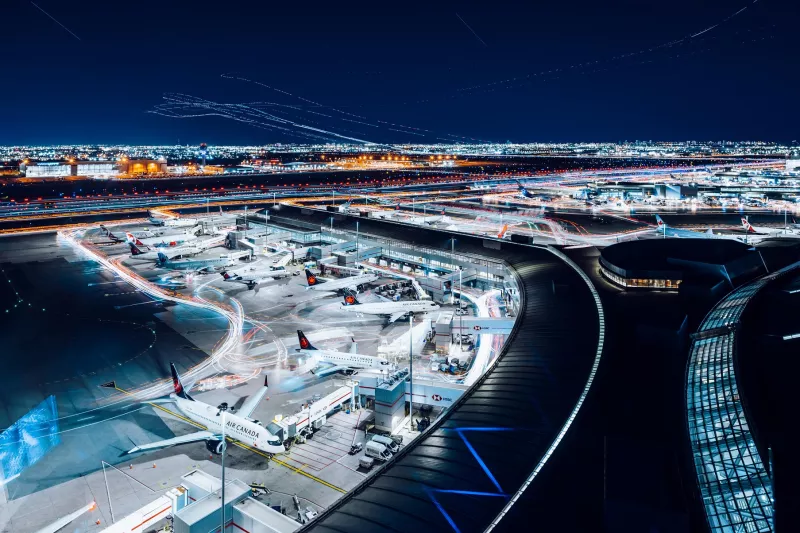
Keeping Passengers Moving
Greater Toronto Airports Authority analyzes passenger queues with Axis cameras and Zensors PAX AI. The data, masked of personal identification, is used to adjust operations and staffing and expedite passenger clearance through customs.
Facing congestion and long wait times
With global air travel at an all-time high, airports are re-examining how they work in order to process the growing number of passengers. Toronto Pearson International Airport, the second-busiest airport in North America for international traffic, is no exception. Pearson receives 276 inbound international flights a day, processing more than 21.3 million international arrivals a year. Amid passenger feedback about regular congestion and extended wait times at the Canada Border Services Agency (CBSA), the Greater Toronto Airports Authority (GTAA) turned to technology to help address the problem and significantly improve the passenger experience.
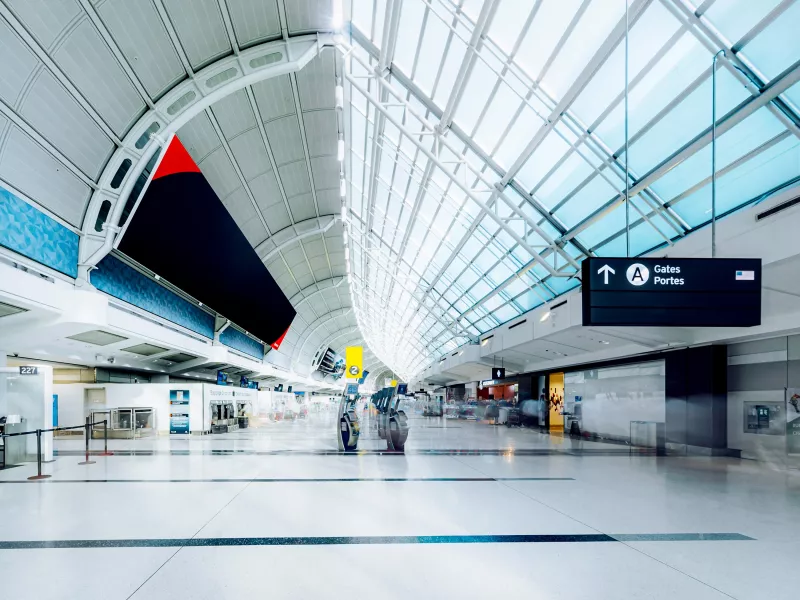
“The challenge was to really understand the average wait times and how we managed individual queues,” says Zeljko Cakic, Director of Airport IT Planning and Development for the Greater Toronto Airports Authority. “From there, we needed to determine how we could improve the throughput of people between the automated kiosks, CBSA and baggage claim.”
Instead of simply eyeballing the queue lengths and making adjustments, the airport wanted a way to accurately estimate wait times within each line. The airport also wanted to be able to correlate the relationship between those counts, their flight numbers, the time of day and the overall schedule of inbound international flights. With that knowledge, airport personnel could better manage the inbound queues and navigate passengers more quickly through customs and out the door.
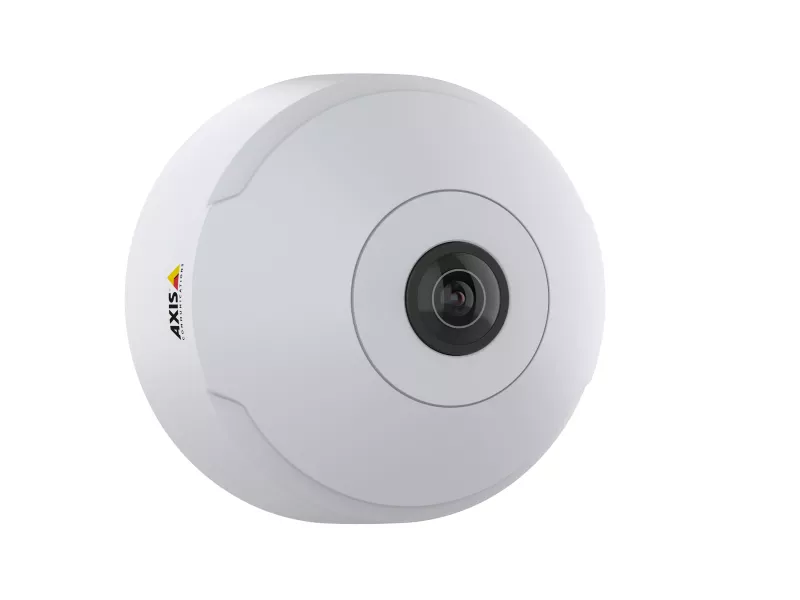
Linking cameras with artificial intelligence
Pearson Airport already relies on more than 3,000 Axis cameras throughout the airport for security and operations purposes – everything from perimeter protection along runway fence lines to monitoring the baggage conveyers and carousels for baggage jams. To improve inbound passenger processing and have factual queue data points, the airport needed to leverage the open architecture inherent in Axis cameras as well as the artificial intelligence (AI) platform of Zensors, a technology company that translates camera images, devoid of passenger details, into actionable information.
Because of the breadth of cameras, lenses, and use case applications that Axis offers, we were able to standardize with a single manufacturer for everything our airport needs to address.
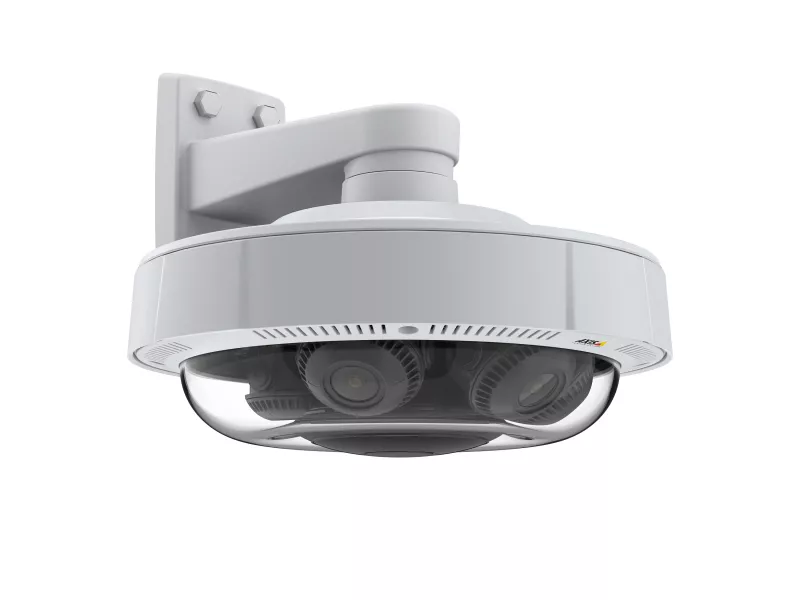
To ensure that the Zensors PAX AI receives all the data it needs for analysis, Pearson Airport also installed additional Axis cameras in processing areas to capture all the needed fields of view. AXIS M30 Dome Camera Series devices with discrete mini domes, provide panoramic views of the passenger waiting area while AXIS P37 Panoramic Camera Series cameras, with their quad sensors, direct focus in four directions simultaneously. Working with Axis and Pearson Airport’s video management system, the airport applied masking to eliminate sensitive information from camera feeds of the passenger inspection lines.
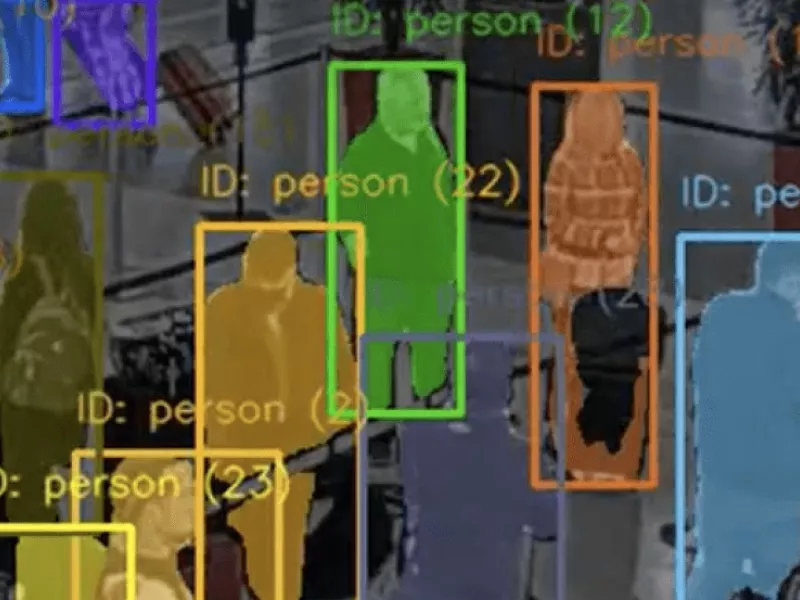
“Using the AI platform, we split the camera coverage into matrixes so we could identify individual flows: international visa travelers, international Canadian travelers, travelers with global entry passes and travelers with families. The AI continually measures the length of the queues, associating them with the flight schedule, time of day and so on, and delivers a predictive analysis of wait times that we post on our website and on overhead monitors in the terminals,” explains Cakic.
The monitors help to relieve traveler anxiety about making connecting flights or other time-sensitive commitments. They also inform those waiting to pick up passengers when to expect their exit from the terminal. “It’s just another step we’ve taken to improve customer experience,” says Cakic.
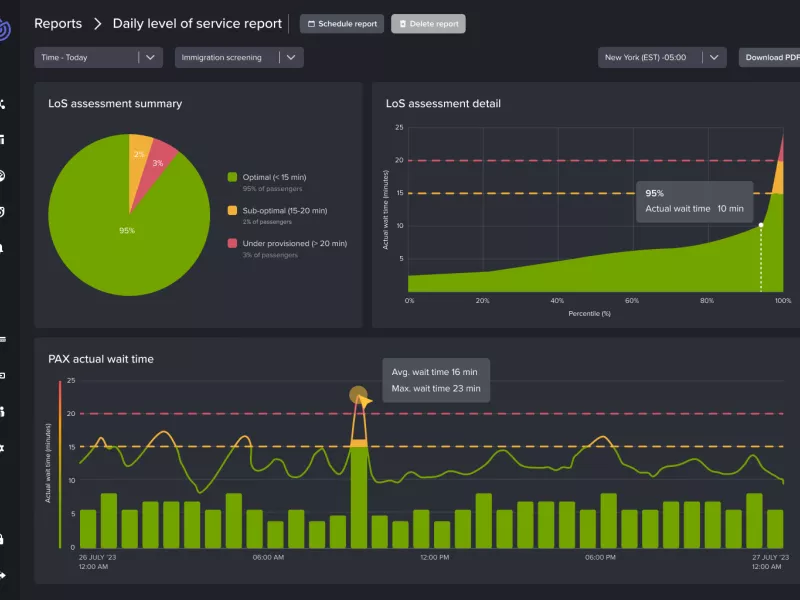
Understanding how the AI platform works
Zensors derives its predictive analysis by processing snapshots and real-time video streams from the Axis cameras. “This dual input allows the Zensors PAX AI to both capture the number of people in a given queue and the flow of passengers exiting the queue in order to provide accurate estimated wait times,” explains John Muhlner, Chief of Staff and Head of Strategic Partnerships for Zensors.
Zensors used AXIS Site Designer to determine which Axis camera models would provide the best coverage for the area. “Site Designer not only helped us with camera selection, but also enabled us to design the optimal layout for the best fields of view,” says Muhlner.
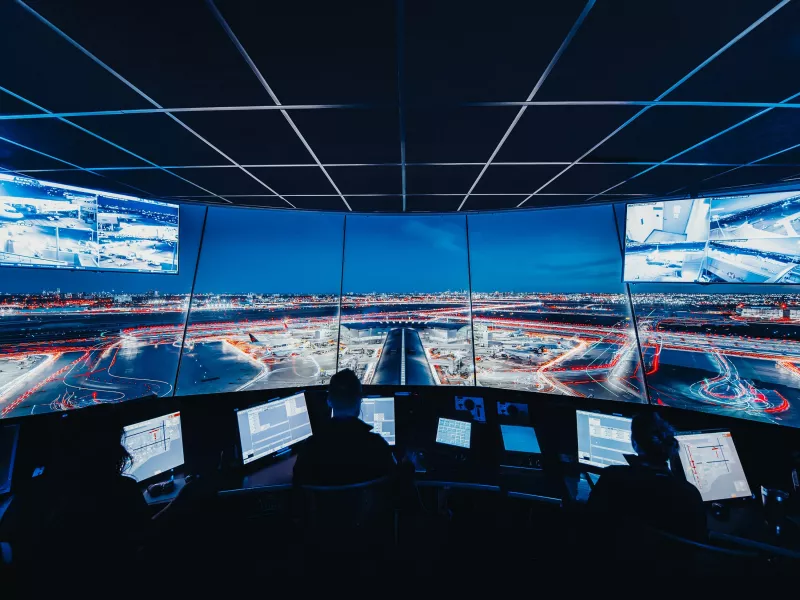
Depending on their travel status and country of residence, incoming passengers choose one of multiple primary inspection lines. The AI platform aggregates video metadata from all this activity to calculate wait times throughout the day for people walking through the multiple queues in this 1,500-square-meter area.
Zensors uses machine learning to continually enhance its AI algorithms to provide a very high level of accuracy. “We are constantly training our AI to recognize and incorporate into its analysis changing conditions at Pearson and other airports – everything from different lighting and different line configurations to the different clothing people are wearing," shares Muhlner, "and this ongoing improvement of our AI algorithm allows Zensors to continue to deliver with very high accuracy.”
The airport is a really complex system with many moving parts. The Axis cameras and the Zensors AI platform are some of the technologies we use to help us manage that system better.
Improving the customer experience
“The analyses we get from the Axis-Zensors system are proving to be very accurate,” says Cakic. “They’ve helped inform our decisions on staffing levels and operational changes to handle incoming passenger traffic. Our goal is to improve overall customer experience and reduce wait times and the data gathered through the Axis-Zensors platform is one of the key contributors for decision making to drive these results."
Products & solutions


